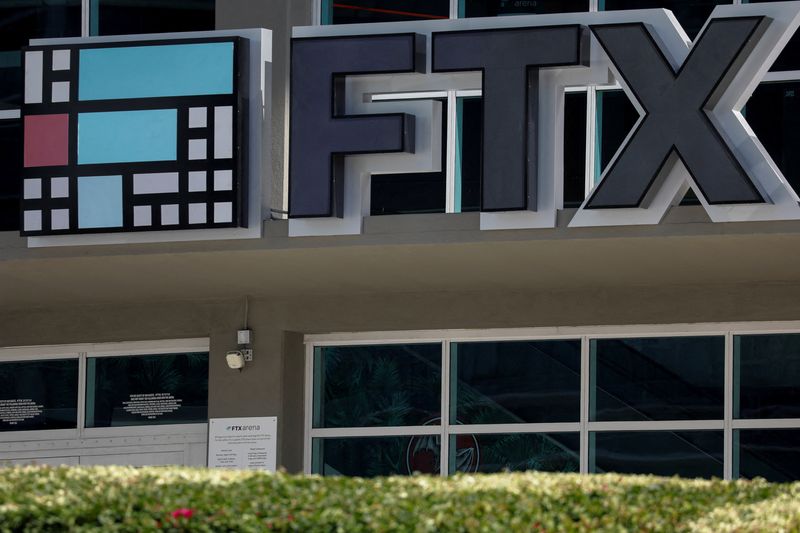By Dietrich Knauth
(Reuters) - Crypto exchange FTX filed for Chapter 11 bankruptcy protection in the United States on Friday following its precipitous collapse, saying it could owe money to more than 1 million creditors. Here is what likely awaits in the case:
WHERE DO THINGS STAND IN FTX'S BANKRUPTCY CASE?
A bankrupt company typically begins its Chapter 11 case by telling the judge about its debts and how it ended up in bankruptcy, and asking for administrative permissions for routine bankruptcy operations.
FTX has not yet filed these routine requests or scheduled a "first-day" hearing to seek initial approvals from the judge in Delaware assigned to its case, a sign that its case is off to a slow start.
"If you are a customer of FTX, you should expect to be disappointed in how long this is going to take," said Harvard Law School Professor Jared Elias.
Another key filing that could provide insight is a request for "debtor-in-possession" financing, essentially a loan to allow the company to continue to function. It is unclear whether FTX will attempt to do this, and it would need court approval to do so.
About 130 FTX affiliates have filed for bankruptcy in Delaware, and the company has selected a new CEO, bankruptcy attorneys at Sullivan & Cromwell and financial advisers at Alvarez & Marsal.
WILL CUSTOMERS GET THEIR MONEY BACK?
Unlike deposits at banks, customer accounts at crypto platforms like FTX are not protected by the Federal Deposit Insurance Corporation. The U.S. government will not step in to cover customer deposits as they would in a traditional bank failure, so customers will have to rely on the bankruptcy process.
A Chapter 11 case halts attempts to recoup assets from a bankrupt company, so customers will have to wait for the bankruptcy court to determine how much, if anything, they will get back. One of the key questions for the court will be whether customers own the cryptocurrency they deposited or whether it is FTX's property.
There is very little legal precedent for that question. In recent crypto bankruptcies, Celsius Network and Voyager Digital both claimed they owned all crypto held on their platforms. That means the crypto would be pooled with all of the bankrupt company's assets and divided to pay all creditors. In that scenario, customers would have what are known as unsecured claims that would be relatively low in priority.
If customers are found to own the crypto, they stand a greater chance of recovering a larger portion of their deposits. But the recovery will still depend on how much FTX owes and what assets it has left.
Bankruptcy judges have so far accepted Celsius and Voyager's arguments, although that could be subject to future court battles, said James Van Horn, a bankruptcy attorney in Washington, D.C.
WHAT ABOUT FTX CUSTOMERS WHO WITHDREW MONEY FROM FTX?
Customers who withdrew their assets from FTX before its collapse are not necessarily in the clear. The bankruptcy court might authorize FTX to claw back those withdrawals so that there can be a more equal payout for creditors who were unable to make withdrawals. In cases involving fraud, the clawback period can be extended for years.
"It's risky to feel like you dodged a bullet, because sometimes you didn't," Elias said.
WHAT OTHER RISKS DO FTX CUSTOMERS FACE?

The bankruptcy might result in the publication of FTX customers' names, email addresses and transaction history.
Bankruptcy depends on transparency - at a minimum, the court needs to know who is owed money, how much they are owed, and how to contact creditors. The courts' preference for transparency are at odds with crypto customers' expectations of anonymity.